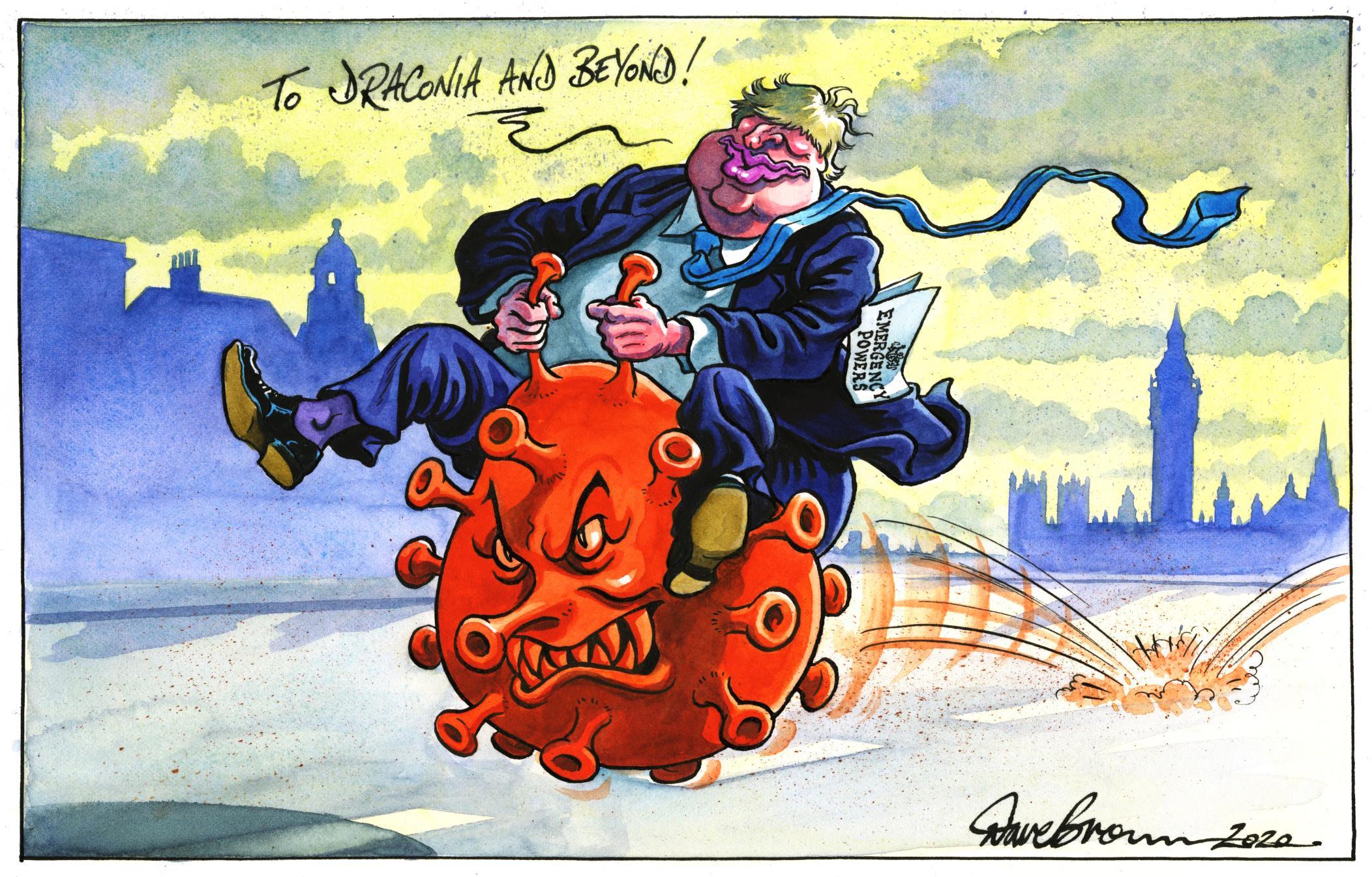Boris Johnson will need to do much more than close schools if he is to get coronavirus done
Editorial: Renters urgently need a rent holiday; statutory sick pay must be increased and made accessible. Ministers seem to acknowledge these issues – but have done nothing to address them

Not for the first time, the government has found itself scrambling to keep up with current events. With anxious parents increasingly taking their children out of school, and closures already announced in Wales, Scotland and Northern Ireland, it was inevitable that a near-total UK school closure would follow.
They may not reopen until the autumn. That in itself will present new challenges for families, though not for those of “key workers”, who will continue to go to school as normal. The provision of money for food for families with children eligible for free school meals is very welcome.
The move certainly raises yet more pressing questions for ministers, not least about how children’s education will be affected in the medium term.
The government’s response to coronavirus has rapidly evolved (to put it politely) from “containment” through “delay” and now towards an undeclared tactic of suppression. This seems likely to intensify, and so ever more stringent measures will be demanded to enforce social distancing, almost entirely on a voluntary basis. How far the public will defer to such persuasion remains to be seen – the experience of panic buying suggests not that far. The lower the compliance, the more lives are put at risk.
Social distancing is an especially urgent question in London. With its dense population, large leisure sector and packed public transport, the capital has become the epicentre of the outbreak in the UK, and experts say it is a couple of weeks ahead of the rest of the nation. London therefore deserves special support – but was barely mentioned yesterday.
The more people stay at home, the slower the spread of the disease will be, and the more time there will be for the NHS to get ready to treat the surge of patients expected over the coming months. It will not be battle-ready for some time. As was clear from the recent testimony of Simon Stevens, chief executive of the NHS, to the Health Select Committee, the health service has nowhere near enough respirators – a crucial obstacle to an effective response. To be fair, there is a global shortage of respirators and medical supplies, for obvious reasons, and the government has to work within that constraint, so equipping hospitals with respirators and staff with personal protection equipment will take time.
The government is most culpable in its slow and inadequate response to those most financially vulnerable in society. The prime minister was reminded yet again in the Commons that simply repeating “whatever it takes” is not going to pay a family’s rent or put food on their table. Three-word slogans have their place, but the time has come for urgent action and hard cash.
Another million individuals could be added to the dole queues in a matter of months. Even now, many of those in the gig economy are facing financial ruin and homelessness within weeks. Rishi Sunak’s package of business support and changes to welfare rules are not up to that challenge. Renters urgently need a rent holiday; statutory sick pay must be increased and made accessible. Ministers seem to acknowledge these issues – but have done nothing to address them. A much more generous regime of income support under universal credit, maybe moving towards a basic universal income, might be one way to cut through the delays and bureaucracy, if only as a temporary measure.
What no one can predict is how long the emergency will last – but it will be a long haul. The former prime minister Theresa May injected some realism into the debate when she reminded her successor that the only real answer to coronavirus is a vaccine, and that vaccine is about a year away. The government is faced with the task of carrying the economy for a longer time and at a greater cost than it seems yet ready to contemplate. To borrow a phrase: coronavirus is far from “done”.
Join our commenting forum
Join thought-provoking conversations, follow other Independent readers and see their replies
Comments